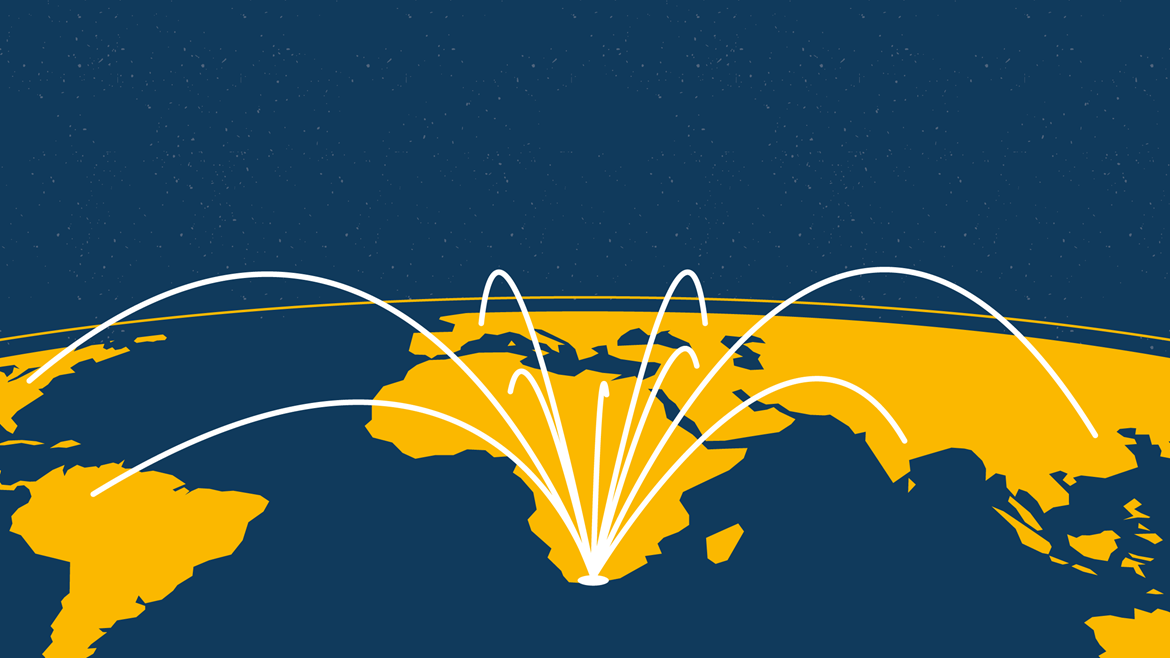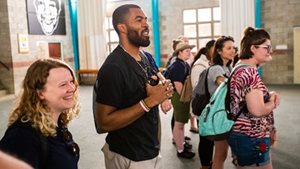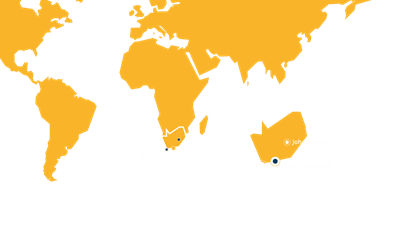

Internationalisation at Nelson Mandela University is an all-encompassing, comprehensive and systematic process that strives to support the University in all its activities.
Internationalisation continuously seeks to innovate and identify best-practices that can be used to fuel University’s commitment to
advancing excellence in scholarship, promoting cutting-edge research and accelerating teaching and learning
innovation. Internationalisation endeavours to integrate Nelson Mandela University within a global knowledge economy as part of
enhancing University’s global competitiveness, support its efforts at achieving financial sustainability, pedagogical relevance,
and development of high quality graduates that are ready to engage with the global world and the demands of the global labour market.



Nelson Mandela University’s Internationalisation Strategy (2019-2022) will uphold and give effect to University policies and make a substantial contribution towards its transformation.
The strategic thrust of the University’s internationalisation efforts places the African continent at the centre of its many initiatives and locates it as a priority in expanding its footprint.
The strategy will also directs University’s institutional attention to those parts of the
world that were previously neglected, particularly in Asia and South America, without neglecting the strong ties already created in Europe, Australasia and North America.
Read More about our Global Partnerships
Through international partnerships, the Internationalisation Strategy will draw capabilities, interests and resources of different
stakeholders to strengthen Nelson Mandela University’s capacity to enhance access and articulation opportunities and enhance the
competitiveness of the University. It will also improve University’s ability to respond to the realities of shifting geopolitics, rapidly
changing technologies and the increasingly shifting population dynamics that demand universities to be responsive to national and
global imperatives.

10 Goals of Internationalisation at Nelson Mandela University
Goal 1: Undertake a three-phased Africa-mapping exercise to identify strategic partnerships and forge strategic partnerships in order to increase the University’s African footprint.
Goal 2: Develop a data bank of partnership agreements and establish efficient and effective information management systems that provide quick and easy access to Faculties and other internal stakeholders on the University’s international partnerships agreements.
Goal 3: Expand academic staff exchange programmes and take advantage of existing academic staff mobility initiatives to support the initiative of developing the next generation of academics. Ensure that academic staff mobility programmes support black postgraduates wishing to develop academic careers and integrates them into the international academic community, the world of international research and teaching and learning.
Goal 4: Broaden student exchange programmes to ensure that inbound and outbound student mobility initiatives contribute to student access and success and support a learning environment that give students the best chances for academic success.
Goal 5: Champion the global profiling and international visibility of the university to enhance institutional relevance.
Goal 6: Support university-wide initiatives aimed at the internationalisation of the curriculum to achieve pedagogical relevance, diversification of knowledge paradigms and degree portability while ensuring that curriculum statements embrace decolonisation, social justice, democracy, equality, sustainability, ecological justice, globalisation, technological change and the changing nature of work.
Goal 7: Build strategic research networks to unlock funding opportunities for supporting collaborative research and teaching and learning platforms, advancing inter-, multi- and trans-disciplinary approaches to research in order to promote the responsiveness of research and teaching and learning modalities to local and global demands.
Goal 8: Facilitate the University’s involvement in collaborative international research projects that support distinctive transdisciplinary niche research areas, the institutional research themes, research chairs and research entities so as to optimise existing and emerging research, scholarship and innovation capabilities.
Goal 10: Utilise opportunities presented by internationalisation and use internationalisation to open opportunities that foster a transformative, values-based institutional culture that gives expression to the legacy and values of Nelson Mandela and creates affirming, collegial spaces for all students and staff..
Goal 8: Facilitate the University’s involvement in collaborative international research projects that support distinctive transdisciplinary niche research areas, the institutional research themes, research chairs and research entities so as to optimise existing and emerging research, scholarship and innovation capabilities.

Study at Nelson Mandela University

Equipping yourself for your career The university boasts more than a century of experience in quality higher education, research and technological innovation from entrance level (certificates) through to research level (PhDs).
MORE INFO

Your study adventure story in South Africa Study at Nelson Mandela University for a semester and experience top quality, affordable education as well as an authentic South African cultural adventure!
MORE INFO

Your study adventure story in South Africa Study at Nelson Mandela University for a semester and experience top quality, affordable education as well as an authentic South African cultural adventure!
Email Us

Conact us to begin your South African study experiience!
one of our student advisors will help with all the details.
More Details
or call us on: +27 (0) 415042161
Studying at the Nelson Mandela University is a life changing experience!


/>